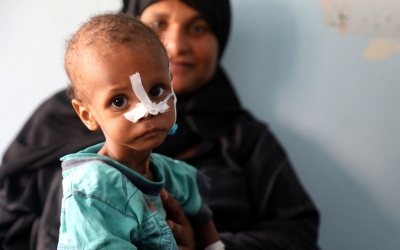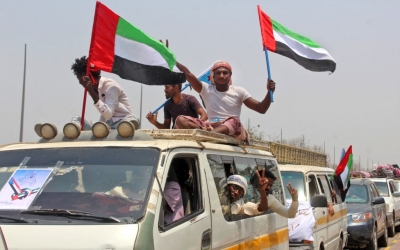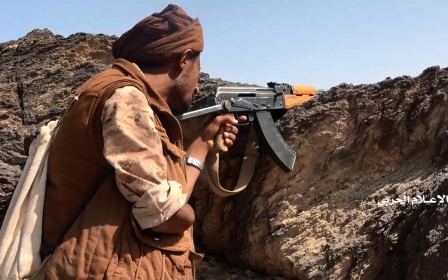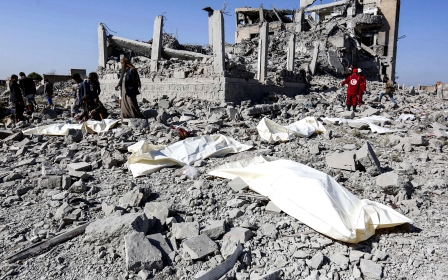‘Taken’ director makes UAE-backed film about Yemen war
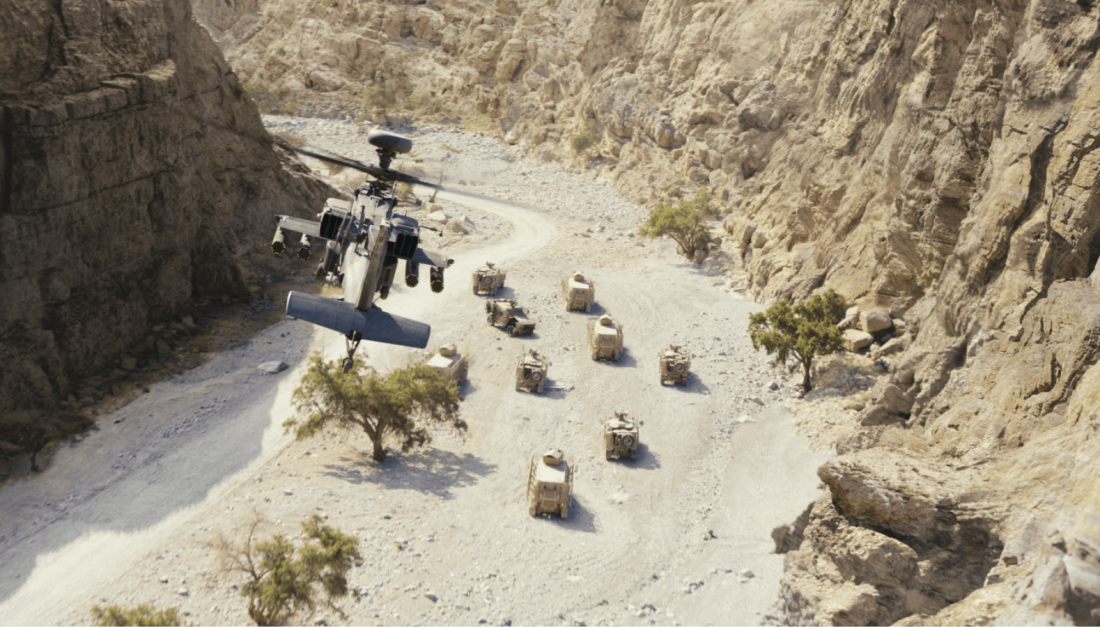
The civil war in Yemen may have been described as the worst humanitarian crisis in modern history, but a new big-budget film based on the conflict has opted to focus on the plight of three Emirati soldiers.
On Monday, the trailer of Al-Kameen (The Ambush) was released online, with the full feature set to come out on 25 November.
The war film, directed by French filmmaker Pierre Morel, best-known for the action thriller Taken, is purportedly based on true events. It centres on a 2018 mission to rescue Emirati troops who had been ambushed by “hostile militants” in a mountainous area of southern Yemen.
The trailer drew ire on social media, as viewers got a first glimpse of a film which, set against the backdrop of the brutal civil war in Yemen, appeared to entirely focus on the struggles of a small group of UAE forces.
The Emirates is a leading member of the Saudi-led coalition which has carried out a wide-scale bombing campaign in Yemen since 2015, and has been accused of targeting and killing civilians.
The United Nations estimates that the war has caused at least 233,000 deaths, and displaced millions.
Government-backed project
Al-Kameen was co-produced by ImageNation Abu Dhabi, a production company which is a subsidiary of the Media Zone Authority, a UAE government entity charged with overseeing and developing the media industry in the Emirati capital.
The film was made with the full support of the UAE government and military.
All of the extras who appear in the film are members of the country's armed forces, and all vehicles and weaponry used during filming were supplied by the military. ImageNation Abu Dhabi employed a dedicated Emirati liaison executive who communicated with UAE government bodies throughout the production process.
The film was shot in a remote mountainous area of Ras Al Khaimah, one of the seven emirates that make up the UAE.
“I have always wanted to direct a war movie, particularly one that is based on true events,” said Morel, whose cast and crew amounts to nearly 400 people.
“When you are adapting a true war story, you have a duty to show respect to those who have fought and suffered and must try to understand all aspects of the story and reflect on what actually happened in real life.
“In this regard, I was very fortunate to meet all the soldiers who were involved in the real ambush, and had lengthy conversations and discussions with them about the real ambush.”
It was not clear whether Morel met or spoke with any Yemenis about the war as part of his research.
He said that he hoped his film would make people from the UAE “proud of these heroes” who “put their lives on the line for their country and its values”.
‘Propaganda’ film
The trailer of the film was met with an angry backlash from activists and analysts.
“The audacity to take part in murdering civilians and bringing Yemen to humanitarian crisis, then make a movie glorifying the horror you cause,” said Bahraini human rights activist Maryam al-Khawaja. “Bookmark for next time you want to vacation in Dubai.”
Many drew attention to alleged war crimes and mistreatment carried out by the UAE and its proxies in war-torn Yemen, which the trailer doesn't mention.
“It may be hard to fit all the war crimes into one film, but at the very least mention the UAE-run torture prisons and illegal takeover of Yemen's islands. We can get into the rest in the sequel,” wrote Arwa Mokdad, a peace advocate at the Yemen Relief and Reconstruction Foundation.
Human Rights Watch and Amnesty have documented arbitrary detentions and forcible disappearances in secret prisons controlled by UAE-backed Yemeni forces in southern Yemen.
Several commentators described the film as “propaganda”, seeking to change the narrative around the Gulf emirate’s role in Yemen.
Others drew comparisons with Hollywood, which has often produced high-budget films, such as Clint Eastwood’s American Sniper and Kathryn Bigelow’s The Hurt Locker, which have been accused of peddling militaristic messages and painting American soldiers as victims.
Like Al-Kameen, several American movies, such as Zero Dark Thirty, which centres on the manhunt for former Al-Qaeda leader Osama bin Laden, were made in collaboration with state authorities. The phenomenon has been dubbed “the military entertainment complex”.
“Remember, Hollywood did this before with [the] Iraq and Afghanistan wars,” wrote one social media user.
“Somehow, the soldier holds the weapon, shoots, kills, and he's depicted as the victim. They'll kill you and blame their trauma and loss on your dead body.”
Middle East Eye delivers independent and unrivalled coverage and analysis of the Middle East, North Africa and beyond. To learn more about republishing this content and the associated fees, please fill out this form. More about MEE can be found here.


